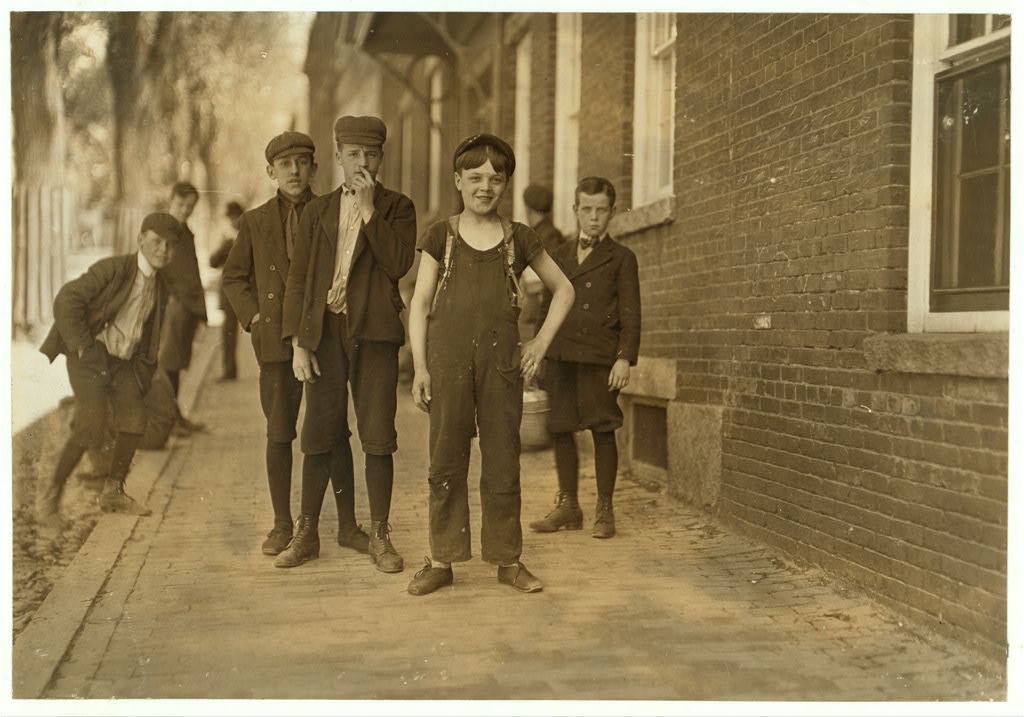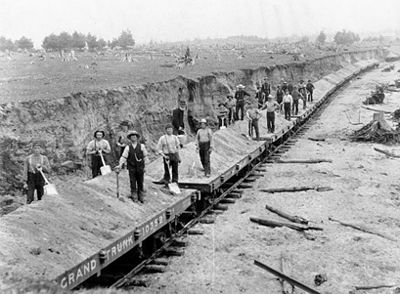Édouard Montpetit, MSRC, lawyer, economist, professor, intellectual (born 26 September 1881 in Montmagny, QC; died 27 March 1954 in Montreal, QC). A key advocate of the modernization of French Canada through the dissemination of the principles of political economy, he championed national traditions against those who believed that they only hampered the progress of the nation. In doing so, he achieved the rare feat of appealing to all audiences.

Education and Career
Son of Adèle Labelle and André-Napoléon Montpetit, a lawyer and a liberal-minded writer, Édouard Montpetit studied at Université Laval à Montréal (known today as the Université de Montréal) where he graduated with a law degree in 1904. In 1907, he received the province’s first ever scholarship to study in Europe. He attended the École libre des sciences politiques de Paris and the Collège des sciences sociales de Paris where he became interested in political economy. When he returned to Canada in 1910, he became a professor at the newly opened École des hautes études commerciales (see HEC Montréal) and in 1912 he became the chair of Political Economy in the Faculty of Law at Université Laval à Montréal. In 1920, he helped found the Université de Montréal’s School of Social, Economic and Political Sciences and became its director, a position he held until 1950.
During his career, Montpetit did more than just teach. As early as 1915, journalist Jules Fournier wrote humorously in L’Action that nothing proves the intellectual indigence of French Canada more than Édouard Montpetit. The journalist continued by writing that whenever a foreigner of any distinction arrived in Montreal, the only presentable man who could welcome him with a few well-chosen words was Édouard Montpetit, every time. “The stranger would come back in six months or the following year; speech by Montpetit. The following year; speech by Montpetit. The year after that; speech by Montpetit.” (Jules Fournier, L’Action, 23 October 1915)
From 1910 until his death, Montpetit was also a member of numerous committees. Among others, he was general secretary and later vice president of the Comité France-Amérique, president of Association canadienne-française pour l’avancement des sciences, member of the Commission des écoles catholiques de Montréal and president of the Institut scientifique franco-canadien. He was also a sought-after lecturer, fundraiser, journal contributor (including as editor-in-chief of the Revue trimestrielle canadienne) radio program contributor (including CKAC's L'Heure provinciale), government emissary abroad, etc. (See also Broadcasting.) In 1930, shortly after the stock market crash, he became president of the Commission des assurances sociales set up by the Quebec government, and in 1933 he submitted a major report covering insurance and benefits. (See also Social Programs in Canada.)
A “Social Economy”
At the turn of the 20th century, there was a growing interest in economics across Canada, with some believing that the tools of this science could be used to plan the nation's development. For Édouard Montpetit, this interest was akin to what was then known as “social economics.”
Montpetit’s social economy principles are simple. On the one hand, taking a stand against classical liberalism, he points out the impossibility of building a social order on the rampant race for profits and the unbridling of personal appetites, since, in his view, life in society imposes duties on everyone. Freedom is not the be-all and end-all of living together, but there is a necessary authority whose task it is to guide and constrain the “laissez-faire, laissez-aller” excesses of classical economic theory. On the other hand, against collectivism, Montpetit stressed that everyone’s talents must be proportionally rewarded, and that private property is an inalienable right. He insisted on the materialism of socialism and its explicit denial of religious beliefs, which make this doctrine unacceptable to him. (See also Economics; Religion.)
That only left him with the Catholic social doctrine, which he considered admirable from every point of view and believed to be the only way to ensure social peace and national prosperity. (See also Social Doctrine of the Roman Catholic Church; Catholicism in Canada.) This moderate doctrine resisted revolution, instead preferring to propose gradual changes. It was interventionist, allowing the State to play a paternalistic role. Denouncing the conflicts that arise between capital and labor, it favoured associations such as caisses populaires, mutual societies and cooperatives as a way out of the crisis (see Co-operative Movement).
The National Question is an Economic Question
For Édouard Montpetit, the application of social-economy principles was all the more urgent given the economic downturn in French Canada. In this respect, he echoed Robert-Errol Bouchette’s main arguments, repeatedly quoting Bouchette’s ideas in L'indépendance économique du Canada français (1906). Montpetit pointed out the paucity of his compatriot’s assets in all areas, starting with what he considered the most important: finance. According to Montpetit, without material wealth, without a minimum of prosperity, there can be no national fulfillment. In an industrial and modern world, poor people are a downgraded people.
That is why Montpetit kept repeating on every podium: “The national question is an economic question. What spiritual life can flourish without material support?” In the first issue of the monthly magazine L’Action française, in 1917, Montpetit introduced the issue with a manifesto of sorts, in which he saw economic success as the first step “towards superiority.”
Education is a Lifeline
After Ludger Duvernay's rallying cry, “Emparons-nous du sol!” (“Let’s take over the land!”) came Édouard Montpetit's, “Emparons-nous de la science et de l'art!” (“Let's seize science and art!”) The aim was to propose education as a solution to French Canada's economic stagnation. According to Montpetit, the key to regeneration begins at school. He believed that prosperous countries, such as Germany and the United States, understood better than others how organized education is now essential to all development. (See also History of Education in Canada.)
For him, reclaiming Canada for French Canadians meant revitalizing the national economy, and appropriating the industry and commerce that had fallen into the hands of foreign capital. Consequently, this recovery required the formation of schools whose task was to refine skills and push forward vocational training and higher education – technical schools, domestic schools, agricultural institutes, polytechnic and commercial schools, but also social and political schools – all of which would fulfill an imperative function, essential to “national survival.”
Legacy and Public Recognition
Édouard Montpetit received a flood of praise on his death in March 1954, being admired for an impartiality that stemmed from his ability to combine views that were otherwise perceived as opposites (nationalism and liberalism, economism and the social doctrine of the Church, Francophilia and Americanism). Today a street, a CÉGEP, a high school and a metro station in Montreal bear his name, among others.
Awards and Distinction (non-exhaustive list)
- Member of the Royal Society of Canada (1914)

 Share on Facebook
Share on Facebook Share on X
Share on X Share by Email
Share by Email Share on Google Classroom
Share on Google Classroom














